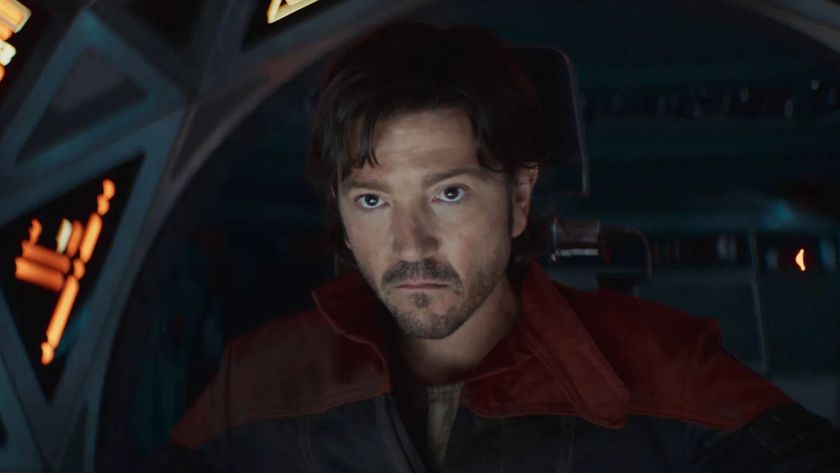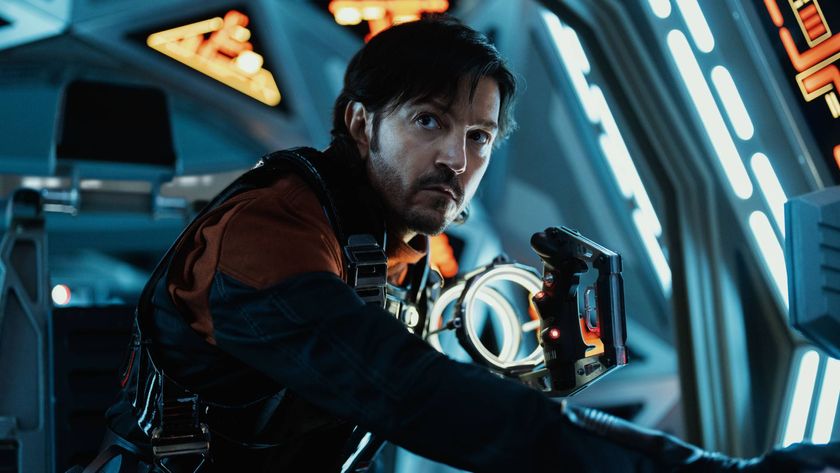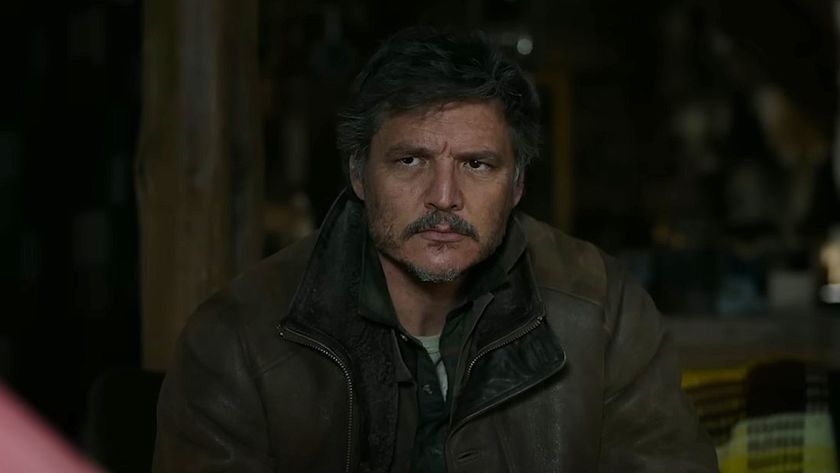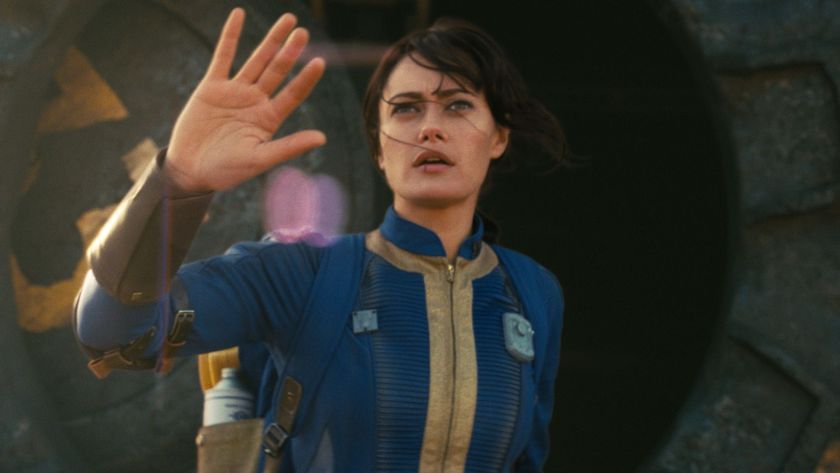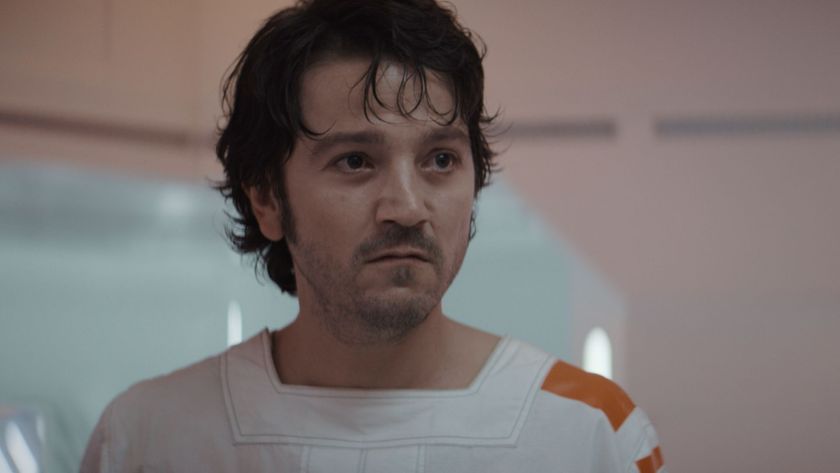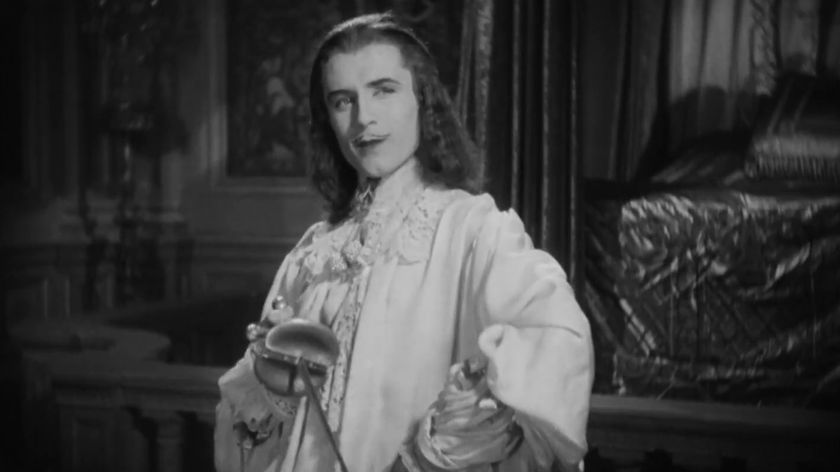Sci-fi And Fantasy's Greatest Reboots
As we wait to discover whether audiences reckon that The Amazing Spider-Man is a successful reboot or not, we look back at some franchises that pulled off a reboot in style

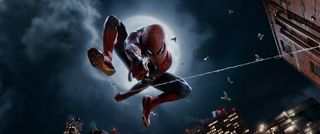
With The Amazing Spider-Man bringing us a new take on Peter Parker’s origin story this week, everybody’s wondering how much of a successful reboot it’s going to be (we loved it – see here – but will you?).
Taking a beloved franchise and starting it afresh isn't always a good thing, but it's worked more often than you'd think. To prove that all reboots aren't failures, Jayne Nelson compiles a list of some successful makeovers to refresh your memory. It's not all Tim Burton's Planet Of The Apes , you know...
(NB We're not doing comic reboots or we'd be here all day! Perhaps another feature in the future...)
10 Rise Of The Planet Of The Apes
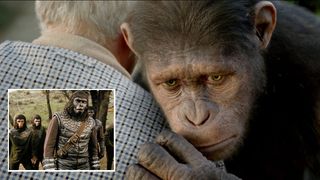
Tim Burton's infamous 2001 reboot is best forgotten, as we're sure you'll agree (barring the make-up effects – nobody can deny they were pretty cool, even if nothing else about the film was). You'd think the Apes franchise would be best left alone after this ignominy, but that didn't stop 20th Century Fox from funding a prequel to the 1968 Charlton Heston movie, much to the bemusement of the world. Such a thing was madness, surely? Who gave a damn about apes these days? And a CGI ape at that! Were the suits at Fox insane?
Nope. Somehow Fox did that thing all studios only usually dream of: bottled lightning. Something about Rise Of The Planet Of The Apes struck a chord with audiences round the world and the film made a fortune.
So what was the secret? To put it simply: technology and Andy Serkis. While the original Apes relied on prosthetics and make-up to do a fairly decent job (for the time), this film needed a “real” ape that could stand upright, emote like a human and, during one crucial scene, talk. That's exactly what we got – a believable chimpanzee: one we could empathise with as though he was one of us. The members of the human cast are the least interesting thing about Rise Of The Planet Of The Apes ; it's all about Caesar, and he’s astonishing. With the central performance pinned down so mightily by Serkis and an army of FX bods, the film flies. Successful reboot achieved!
9 X-Men: First Class
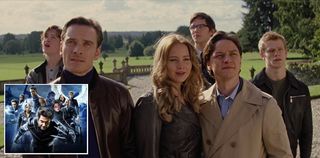
This really did sound as though it was going to be a shaggy-haired dog of a movie when it was first announced, but boy, did we eat some crow when we saw the end result. Taking place before the X-Men movies we've grown to know and (mostly) love, First Class rebooted the universe by wilfully ignoring several continuity points from those films to launch itself on a new timeline. We should have felt a little annoyed, perhaps, to see the original X-Men films so shamelessly undermined, even in mostly subtle ways – but who could hold a grudge when the prequel was so good?
Sign up to the SFX Newsletter
Get sneak previews, exclusive competitions and details of special events each month!
Most of the joy comes from the casting. Man-of-the-moment Michael Fassbender makes for a cracking young Magneto, alongside James McAvoy being far warmer and more cuddly than you'd ever expect young Professor X to be. The Hunger Games ' Jennifer Lawrence brings dimension to Mystique – something the other films never managed, as they drowned under their heavy character roster – and everybody from the excellent young ’un Nicholas Hoult to the alluring January Jones flesh out other characters we've always wanted to see given more screen time. (With the latter, “flesh” was on display in more ways than one, too.)
As a way of introducing the idea of mutants you can't fault First Class , and there's a deeper, more personal thread to the film thanks to the unravelling relationship between Erik and Charles. X-Men: First Class is a reboot that we never knew we needed until we got it.
8 Star Wars: The Clone Wars
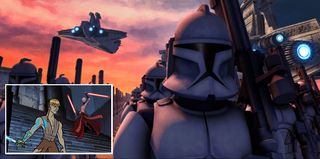
The idea of the Clone Wars always sounded exciting. We may have had no idea what Luke and Obi-Wan were on about in the old hermit’s hut, but their passing comments about a mysterious interstellar conflict made us want to learn more. A lot more.
So it was a tad disappointing when it turned out that Episodes II and III would confine us to the book-ends of the skirmish, that most of the battles between the Republic and the Separatists would remain trapped in our imaginations. Luckily, George Lucas had bigger plans in mind – and not just once over.
Having given Samurai Jack creator Genndy Tartakovsky the chance to play around in the Star Wars sandpit with the ace series of 2D shorts that fed into Revenge Of The Sith , Lucas decided to start over with a big-budget, computer-animated series set smack in the middle of the eponymous war. Aside from Tartakovsky’s stylised character designs being echoed in their 3D counterparts, Clone Wars mk II was an altogether different beast: it was bigger in scope, the storytelling was more ambitious, and the battles were nearly as spectacular as their live-action counterparts. Indeed, where the prequel movies were quite rightly criticised for being over-talky, The Clone Wars has consistently refused to skimp on the action.
Four seasons in, the show has also ventured deeper into Star Wars lore than any of the movies – there are more than three times as many hours of The Clone Wars than there are of Star Wars movies – and it’s frequently explored fan-friendly territory like the Mandalorians and the ever-popular bounty hunters. Throw in the fact that it’s prepared to go to some pretty dark places and that the fates of a couple of key characters remain shrouded in mystery, and The Clone Wars isn’t just one hell of a reboot. It’s arguably the best of the Star Wars prequels. It’s a shame for Tartakovsky, really, because before The Clone Wars came along, his version had a claim to that title.
7 Star Trek (2009)
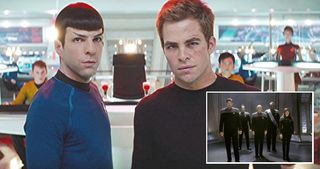
Does Star Trek: The Motion Picture count as a reboot? We say no, because the changes really amounted to nothing more than new uniforms, a redesigned ship and a change of pace (to barely any pace at all). This leaves us free to hail 2009's Star Trek film as the Great Star Trek Reboot We Should Worship. And rightly so, because it's bloody brilliant.
Let's look at the cast: Chris Pine is a boyish and cheeky Kirk, exactly the kind of guy you'd expect him to have been before heading out on his first mission to the stars. New Zealander Karl Urban doesn't just nail Leonard McCoy's deep south accent, he nails everything else about him too – it's like he's DeForest Kelley's son, yet he's also, somehow, a brand new McCoy. As for Spock... Zachary Quinto is our pointy-eared hero. What else can we say?
Plus it’s not just their individual performances that are great: the way the three of them mesh into the perfect Kirk/Spock/McCoy triangle is almost supernaturally precise. At times it's like watching the original Star Trek , only with more lens flare.
JJ Abrams is no fool, understanding that to reboot something as sacred as Star Trek , he had to make it cool. Thus his film is so cool you almost have to wear a coat while you watch it. The FX are gorgeous , the battles are visceral, the set design is (rather ironically) contemporary and the script... well, okay, some of the script isn't quite on the same level as everything else, with a weak villain and his silly time-travelling agenda rather confusing things (Nero felt more like he belonged in a Voyager reboot). But the banter, action and general feel of the film make up for this.
This is Star Trek , that universe which captured hearts and minds back in the '60s, still capturing hearts and minds 40 years on. Bravo!
6 Buffy The Vampire Slayer
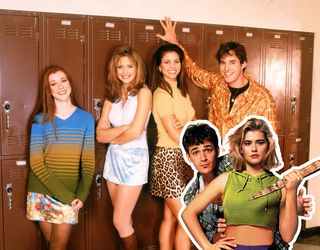
It's almost become a cliché to tell someone who's just discovered the rich, charming world of Joss Whedon's TV show to avoid the original movie at all costs. Well, we don't care if it's a cliché, we'll say it anyway: avoid the original movie at all costs. Buffy The Vampire Slayer didn't so much hit cinemas in 1992 as shamble into them, play a few times, then shamble out again to go and die under a bush where it belonged. Filled with crappy performances, confused plotting and terrible direction, it was genuinely awful.
However... there was something there. A concept. A brilliant concept. Whedon may have lost control of the film but he absolutely nailed it when he transferred it to television, picking up after the end of the movie with a different Buffy, a new school and none of the crap. The rest is history.
5 Batman Begins
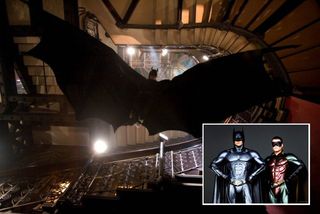
We're not knocking Tim Burton's 1989 Batman reboot, which took a character who'd become a comedic foil thanks to the slapstick '60s TV show and gave him a little more dignity, some darkness and a brand new lease of life. We just think that Christopher Nolan did it better. He took a Batman who'd become another comedic foil thanks to the diminishing quality of the Schumacher follow-up films and gave him even more dignity, even more darkness and a whole new lease of life. The result was astounding.
Batman Begins isn't what you'd call a laugh-a-minute – it's about as pleasurable as a trip to the dentist at times, filled with psychological trauma, violence, grief and pain. But that’s what makes it so damn good: it's a comic-book character being treated like a real human being, with all the shit that goes along with that. Nolan’s eye for a stunning action sequence; Christian Bale's brooding charisma; a gritty, realistic Gotham and a real sense of good versus evil, right versus wrong (not to mention life versus death) all added up to a film that blew its predecessors out of the water.
The Dark Knight was even more powerful, and hopefully The Dark Knight Rises won't disappoint either. We don't think it will. This Batman can never be bettered. Probably.
4 Casino Royale
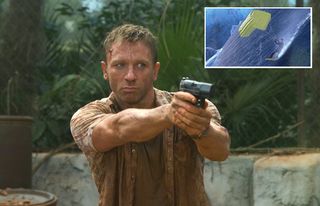
You could say that every time a new actor plays James Bond the franchise is rebooted, and we wouldn't argue with you. We don't believe that any 007 has had more of a reboot than this one, however; in fact, the end result is so different in tone from such wilfully fantastical installments as Live And Let Die or Moonraker that SFX has a hard time justifying its coverage (except that when we put it to the vote the response was an overwhelming yes). When Daniel Craig signed up for this film, Bond got real .
It's all Matt Damon's fault. Bond films had become huge, bloated affairs with overblown setpieces and flabby storylines, many no longer tethered to any kind of reality. Then, in 2002, along came Damon and director Doug Liman to shake up the action genre in The Bourne Identity . The film was a bit of a sleeper hit but it slowly began to hit a chord with audiences, who responded to Damon's amnesiac, highly-trained assassin and the so-gritty-you-could-fill-a-cat-litter-tray-with-it feel of the action. When Die Another Day came out in 2004, it already looked like a dinosaur: it tried its best to be serious and hard, but Bourne had outclassed it.
And so Daniel Craig's Bond had to tip his hat to young Jason and start from scratch. None of the glitz, slickness and glamour of previous incarnations for him, oh no; this Bond was all bleeding knuckles, tortured psychology and old-fashioned, real-life stuntwork. Any CGI was kept to the minimum – 007 lived in the real world, not a world in which he could ride around in an invisible car and surf computerised tidal waves .
This new Bond may be hard for SFX to cover thanks to a lack of fantasy, but we'll let him off because he's so damn good. Thank you very much, Matt Damon.
But hey, if after all that you still think including Casino Royale is cheating, click here for an alternate number four for this countdown.
3 Battlestar Galactica
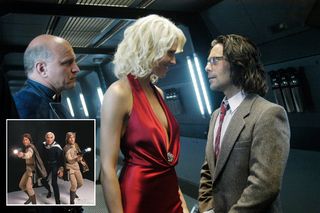
Now this really was a reboot and a half. Old Battlestar Galactica is about as similar to new Battlestar Galactica as a wee fluffy kitten is to a murderous zombie tiger with metre-long claws. Comparing them is almost impossible: barring surface similarities in the concept, character names and spacecraft, new BSG is like the live-action, 18-rated version of a kids' cartoon.
And bloody hell, is it better for it. While the '80s Battlestar can be viewed through nostalgia-glasses as a fun, colourful little show, 21st-century Battlestar is filled with despair, psychological trauma and darkness. The original brushed off the deaths of millions of humans so that Starbuck could eye up the girls with a cheeky quip; the new show dwelt on characters' overwhelming grief and loss for years. The world wasn't ready for sci-fi to be dramatic television back then, particularly when it was trying to draw in the Star Wars crowd. But the reboot used 9/11 as its focus, channelling all those feelings into a new universe we could understand because we'd lived it.
The fact that BSG became a worldwide hit beloved by the critics also made it a great redeemer for all of sci-fi – undoing a lot of the damage caused by the silly show that inspired it from so many years ago. Now that's some feat.
2 Star Trek: The Next Generation
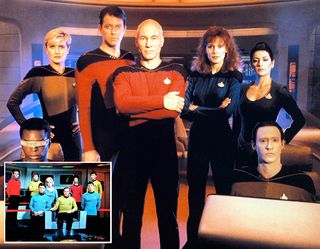
On 3 June 1969 a little-noticed TV series named Star Trek aired its very last episode, “Turnabout Intruder”. From 4 June it was as dead as a doornail, the victim of falling ratings, network apathy and a slew of silly plots. Who would ever have thought that it would one day get a reboot that would go on to outlast the original show's run by four seasons and prompt three spin-off series and some spin-off movies?
Trek was originally going to get a complete reboot in the '70s, on a new television channel being planned by Paramount. When that fell through, it wasn't until 1987 that the show hit the small screen again (naff cartoon series aside) – and as far as reboots go, we couldn't have asked for a better result than Star Trek: The Next Generation .
TNG took the brave leap of setting the action in Kirk and co's future. It gave us a brand new, redesigned Enterprise. Its Captain was less a man of action, more a man of thought – no beaming on down to random planets and snogging green women for Picard! It had a modern viewpoint on many things, from including more women in the crew in positions of power, to more emphasis on the characters as real people: there was a Counsellor on board so the crew could talk through their feelings. Members of the original show even popped up in cameos from time to time, cementing the link between the two eras. Later we got Deep Space Nine , Voyager and Enterprise , not to mention the movie adventures for Jean-Luc's crew – such was its success.
Star Trek remains one of the most influential shows in television history, and Star Trek: The Next Generation picked up its baton and ran so far with it that it almost left its predecessor in the dust. It's hard to imagine one show without the other these days... and what greater praise can any reboot ask for than that?
1 Doctor Who
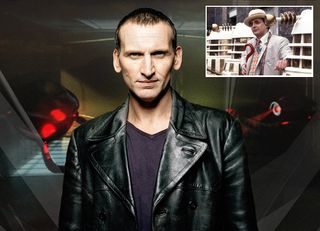
What else could have snagged our number one spot? When Sylvester McCoy's Doctor disappeared off our screens in 1989's “Survival”, survival was the last thing viewers expected when it came to Doctor Who . The show had been chiselled away, demeaned and lessened over the '80s, a mere shadow of its former, ratings-busting self. Just when it looked as though the Doctor had faced his last regeneration, however, along came the TV movie in 1996... but then that turned out to be nothing more than the television equivalent of a heart monitor showing a lone beep during frantic attempts to revive a dead patient's heart with some paddles. The Doctor was gone.
But look where we are today. We've had three more Doctors, all of them magnificent in very different ways. We've had companions who've become beloved by the nation. The show has been a hit around the world (yes, even in America!) and we can only imagine how much the BBC's coffers expand every year thanks to all their canny merchandising. And it's all down to the efforts of a dedicated team of genuine Doctor Who fans who weren't willing to let their favourite show die when there was still life left in the old Doctor (five regenerations after Paul McGann). Thanks to Russell T Davis, Julie Gardner, Steven Moffat and too many others for us to list here, The Doctor is well and truly IN.
So what did they do? Made it believable , for a start. There was something about the way Christopher Eccleston's Doctor a leather jacket that grounded him, making him more relatable than a guy wearing a shirt with silly question marks on the collar could be. And the show explored the emotional effects time travel could have not only on the companions, but their families.
Yet the show also had a sense of wonder, both about the Doctor himself and the universe he lived in. Travelling through space was genuinely awe-inspiring, rather than a trudge from one life-threatening adventure to another. A dash of sex appeal was also added to our favourite Time Lord as he suddenly became the kind of guy women (and men) could fall for. The monsters became scary again – even the Daleks, for a while. And the BBC had the guts to give it a primetime, Saturday night slot.
Oh, and some decent effects helped; thanks to the great leveller of CGI, Doctor Who no longer looked cheaper than every American SF show, and looked positively cinematic compared to most Syfy shows.
The kids of today lapped up every goddamn minute, and so did we.
It wasn't called Doctor Who: The Next Regeneration , but it might as well have been. Nobody comes back from the dead quite as spectacularly as The Doctor.

Dave is a TV and film journalist who specializes in the science fiction and fantasy genres. He's written books about film posters and post-apocalypses, alongside writing for SFX Magazine for many years.
